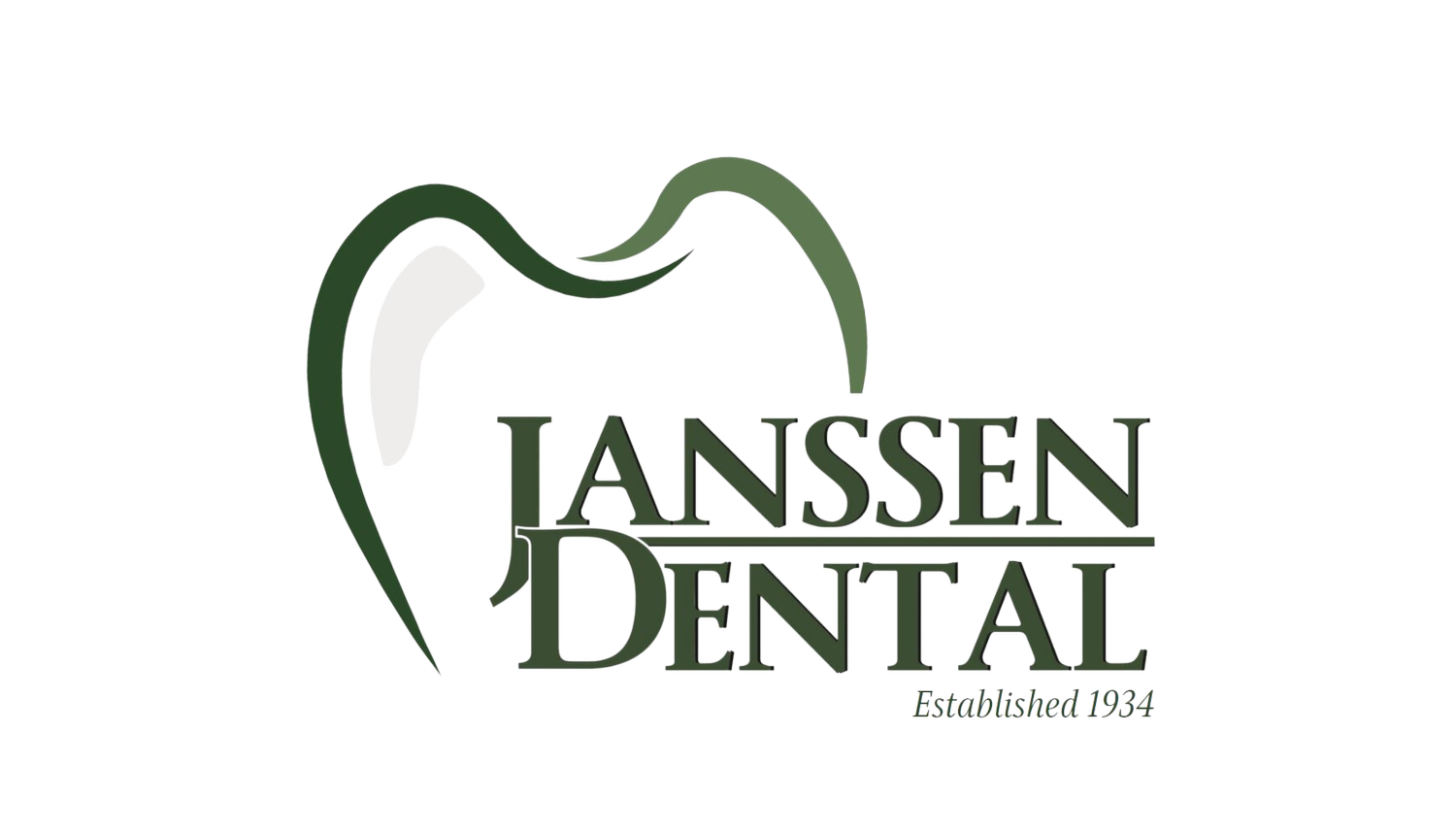Tooth Abfractions Can Lead to Additional Oral Health Issues
Janssen Dental addresses causes behind this lesser-known problem
Tooth abfractions are not as well-known as cavities when it comes to dental health concerns. That doesn’t make them any less serious. In fact, the prompt treatment of tooth abfractions and addressing their underlying causes are major focuses of Dr. Craig Janssen’s biological dentistry approach to care.
What are tooth abfractions?
Tooth abfractions typically appear as wedge-shaped notches or grooves in the tooth, usually where the tooth meets the gum line. Unlike cavities, which develop as a result of decay, mechanical stresses are the root cause of tooth abfractions rather than bacteria. Here are some examples of those mechanical stresses:
· Teeth grinding (bruxism) – Habitually grinding your teeth or clenching your jaw can cause the enamel and dentin to gradually wear away.
· Improper teeth alignment – This can result in uneven distribution of force when biting or chewing. Also known as malocclusion, improper alignment of teeth can lead to the development of abfractions over time.
· Incorrect tooth brushing – Using a hard-bristled toothbrush with too much force can erode tooth enamel at the gum line and make it susceptible to abfraction. Excessive brushing or strong brushing does not cause tooth abfractions directly, but it can cause gum tissue to recede and expose a weaker portion of the tooth.
· Acidic foods and drinks – Consuming foods and beverages that are high in acid content can make your teeth more prone to all sorts of issues. The combination of acid erosion and mechanical stress – even from chewing – can promote the formation of abfractions.
· Natural aging – The natural wear and tear of a lifetime of using our teeth can lead to the development of abfractions. The cumulative effects of grinding, chewing and other stressors can weaken your teeth at the gum line.
Treatment options for tooth abfractions
Dr. Craig encourages patients with tooth abfractions to take steps to prevent further damage. Untreated tooth abfractions can lead to increased sensitivity, making it increasingly uncomfortable for you to consume hot, cold or even sweet foods and beverages. More importantly, abfractions can worsen to the point of compromising the structural integrity of the tooth.
Neglecting tooth abfractions and hoping they will simply go away is not an effective strategy. They can serve as entry points for bacteria, increasing your risk for tooth decay and gum disease. Taking action is essential to restoring the appearance of teeth and solidifying their function, as well as avoiding complications that can crop up down the road.
Here are some of the more common treatment options Dr. Craig recommends:
· Night guards – These can be an effective option for people who grind their teeth at night. Night guards are custom-fitted appliances that act as a protective barrier in reducing the amount of stress you put on your teeth during sleep.
· Alignment adjustments – Getting your upper and lower teeth in proper alignment can help distribute chewing forces more evenly. This may involve reshaping the biting surfaces or using orthodontic means to correct the misalignment.
· Composite bonding – This popular treatment option restores the tooth’s integrity and prevents further wear. It involves applying a tooth-colored resin to the affected area, and then shaping it to blend in with your natural tooth.
· Brushing tips – As basic as it might seem, educating patients on proper brushing techniques is a big part of what we do. One of the easiest changes you can make is ditching your hard-bristled toothbrush in favor of a soft-bristled option.
Conclusion
Tooth abfractions require attention both to address root causes as well as prevent further complications. Dr. Craig and the team at Janssen Dental Clinic are dedicated to providing the comprehensive care you need to address this potentially serious problem. We work with you to optimize your oral health for a lifetime of enjoyable eating, drinking and smiling.
About Janssen Dental Clinic in Green Bay, Wisconsin
Janssen Dental Clinic features the dental expertise of Dr. Craig Janssen, a third-generation dentist serving patients in Green Bay, Wisconsin, and the surrounding area. Dr. Craig and his staff specialize in oral health as a component of overall well-being, a philosophy of care known as biological dentistry. They have expertise in reducing the fear and anxiety that people of all ages feel over going to the dentist, with services ranging from routine cleanings to restorative and cosmetic procedures. Call (920) 983-8383 to schedule an appointment. New patients are always welcome.

